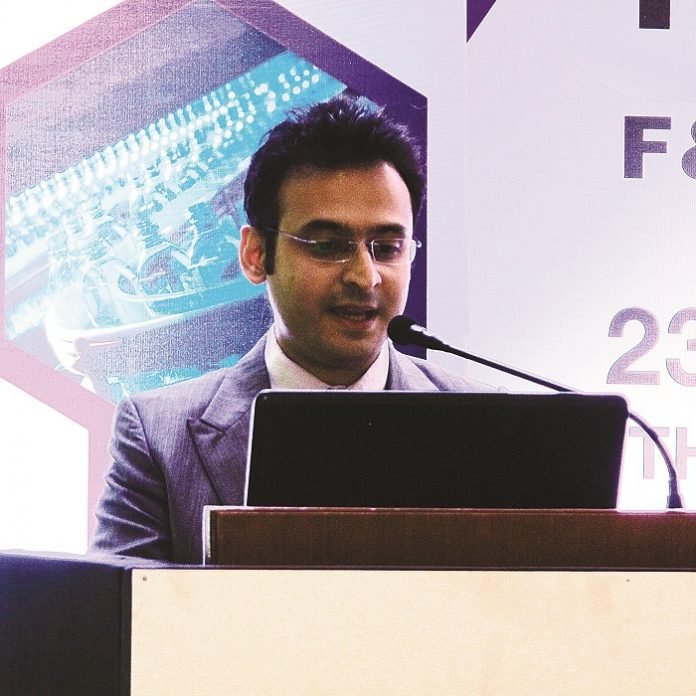The Innopack Food and Beverages event in Gurgaon in April gave several supplier sponsors an opportunity to speak at the event and to network with the many brand owner packaging
professionals at their small stands set up outside the conference room over the two days. The sponsors were ACG Worldwide, ITC Bhadrachalam, Bobst, Domino, Markem-Imaje, all equipment, technology or raw material suppliers. In addition there were the converters and intermediaries such as Skanem Interlabels, JK Labels and Trigon.
Although rushed by the schedule of the last day, Karan Kapur of Mumbai-based JK Labels made a short presentation about speciality labels for the food, beverages and FMCG industry addressing some of the new technologies that are becoming available for security and that are environmentally friendly. Kapur emphasized the best practices and standards that his own company follows for producing high quality and safe for food labels.
Special wet strength labels that can withstand refrigeration and ice bucket tests, food labels whose face stock and adhesives are certified by the FDA for direct food contact and several other special application labels for pharma, luxury and medical products that require textures, transparency or the ability to withstand freezing or uneven surfaces. Kapur says, “Although one can procure FDA approved for food contact label stock, there are still some serious concerns on low migration inks for food packaging and labels.I am researching this area and will be speaking about it at the upcoming Innopack Conference in Mumbai on 18 and 19 June 2015.”
Kapur made it clear thatthere are labels for every special need and then went on to discuss some of the security and environmentally friendly label technologies that are available. He pointed out that in some cases while technologies like linerless labels may be desirable, there are constraints to theiruse at present, including cost.Onthe other hand,he suggested that the use of PETlinersbring 100% recyclability at marginally increased cost and can thus be viable in the Indian scenario for those consumer product companies that are committed to reducing their carbon footprint.











